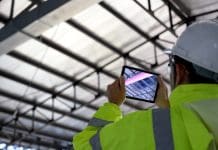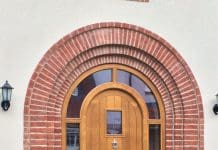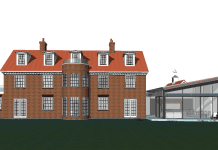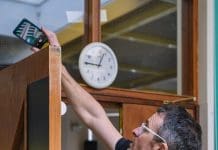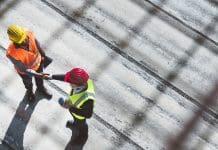West Fraser’s SterlingOSB Zero is the answer to green, speed and cost demands in offsite construction
Speed and efficiency favour offsite housebuilding; offsite favours timber frame; and timber frame favours West Fraser’s SterlingOSB Zero. The result is less reliance on traditional site-based trades and a re-shaping of the housebuilding sector.
In a recent House of Commons research briefing addressing the housing shortage in England, it was estimated that 340,000 new homes would need to be supplied every year to meet demand.
Offsite timber frame construction could be the solution for housebuilders and using West Fraser’s SterlingOSB Zero is just the ticket in terms of green, speed and cost when considering essential board materials. In fact, MTW Research forecasts a rapid rise in timber frame buildings across the residential and commercial sectors in 2022.
Offsite construction is one of the most environmentally-conscious processes in the industry through the use of sustainably-produced materials manufactured locally around the UK and Ireland.
Why timber frame?
The growth of timber frames is changing long-established practices within housebuilding as the construction industry embraces the idea of off-site manufacture. This approach is due mainly to the fact that offsite manufacturing means a huge reduction in the site-based activities that define a traditional building firm.
The reduction in on-site activity means that, once the building’s foundations are installed, the erection of the main structure follows very quickly, typically taking only two or three days to complete.
New timber-framed homes can therefore be brought to market at a much faster rate than is possible with traditional brick-and-block. Crucially, this also has the effect of extending the building season which, traditionally, slows significantly during the winter period. Housebuilders can therefore be more productive throughout the year if they build with timber frames.
After land prices, the two biggest cost factors in housebuilding are time and labour. Timber frame scores significantly on both counts since off-site manufacture reduces not only the erection time on site but also the number of traditional building skills required. The factory processes employed in the manufacture of timber frame cassettes can be largely automated, unlike traditional site-based building trades.
Structural timber technology addresses many government concerns associated with the procurement of housing – including environmental impact and energy efficiency, as well as speed of construction and cost. The materials that go into a timber frame system are generally more sustainable and more energy-efficient than traditional masonry.
For example, West Fraser’s oriented strand board, SterlingOSB Zero, is one of the most widely-used components of UK timber frame systems. OSB is an essential component of all timber-framed panel systems and a major contributor to their growing popularity.
SterlingOSB Zero is manufactured in Scotland from home-grown forest ‘thinnings’ (slender, immature trees harvested as part of sustainable forest management) while its zero-padded formaldehyde (ZAF) formula is designed specifically for safer construction and healthier buildings.
Besides ‘traditional’ timber frame construction, newer timber-based off-site technologies, such as cross-laminated timber and structural insulated panel systems (SIPS), are strengthening timber’s share of the housebuilding market.
The benefits of these systems, being comparably lower energy-intensive and emission producing in their manufacture and possessing greater thermal efficiency in their use, is helping to support their specification in the timber frame market.
The SterlingOSB Zero range from West Fraser
Manufactured using renewable heat from on-site biomass boilers, West Fraser’s SterlingOSB Zero is a sustainable, low-energy product with excellent physical performance characteristics. West Fraser’s OSB portfolio comprises SterlingOSB Zero 3, SterlingOSB Zero Tongue and Groove, and SterlingOSB Zero StrongFix. They are variants of the precision-engineered OSB3 board; BBA-approved and designed for humid conditions. The board is certified according to the guidelines of the FSC or PEFC.
Find out more about West Fraser’s carbon negative status.
For further information on West Fraser’s products, call 01786 812 921 or visit https://uk.westfraser.com/



